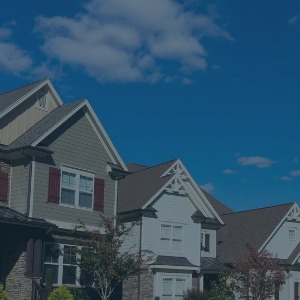Reasons to Consider a Refinance
As rates drop or home values increase, many homeowners consider if refinancing their mortgage is worth it.
The Most Common Reasons to Refinance Include:
- Mortgage Rate Drop
- Lower Payments
- Debt Consolidation
- Cash-Out For Home Improvement
- Refinancing Out of an Adjustable Rate
1. Mortgage Rate Drop:
If you own for an extended period, there is a high probability that you'll experience a few windows where rates drop low enough to justify a Rate and Term Refinance. A Rate and Term Refinance simply means that you are making a change to the rate or term of the loan, such as dropping from a 30 year to a 15 year note.
Our mortgage professionals closely monitor daily rates and future economic patterns to keep our past and current clients in the loop if interest rates fall within their target.
2. Lower Payments:
Lowering a mortgage payment doesn’t always require a reduced rate. You can achieve a lower payment by lengthening the loan term, consolidating two or more mortgages into a single mortgage lien, or removing mortgage insurance (MI or PMI).
3. Debt Consolidation:
If there is a sufficient amount of equity, sometimes paying off the consumer debts by rolling them into your mortgage can significantly reduce overall monthly debt liabilities.
4. Home Improvements:
There are a number of home improvement refinance loan programs available for homeowners with or without much equity.
5. From ARM to Fixed - Peace of Mind:
Adjustable-Rate Mortgages can be an amazing tool when used correctly. They can go down and stimulate your savings, BUT they can also go up and stress your monthly payment capacity in a way that could end in foreclosure.
Of course, nearly all adjustable-rate mortgages are fixed for a predetermined amount of time based on your loan terms which usually vary between 3 and 10 years fixed.
It’s important to understand the fundamentals behind the factors that drive ARM rate changes and how they might affect your individual situation.
The macroeconomic principles that drive ARM rates can be understood by most when explained correctly.
If you purchased or refinanced and took your ARM out during an economic growth period and the economy has since declined - your adjustable-rate is likely going down.
If you purchased or refinanced and took your ARM out during an economic recession or other down periods and the economy has since improved - your ARM is likely going to adjust up.
** By refinancing your existing loan, your total finance charges may be higher over the life of the loan. **
FAQ's About Refinancing Your Home Loan
You can refinance with a new lender in most cases where you are refinancing a traditional mortgage program such as FHA, VA, Conventional, or Jumbo. It doesn't hurt to check with another bank to compare rates or fees to what your current lender may be offering.
The documents required for a refinance depend on the type of loan program you are refinancing. Certain Streamlined FHA or VA loan programs have limited document refinance programs. If you are increasing the loan size or pulling cash out on a refinance for debt consolidation or home improvement, you should be prepared to provide more documentation.
This also depends on your loan type and lender, but waiting six months is a good rule-of-thumb.
Every cash-out refinance loan scenario is unique. The amount of cash to borrower for a cash-out refinance depends on a number of factors, including but not limited to: Loan-to-Value, Credit Scores, Income / Assets, Loan Type, Loan Size, Property Type, Use, Seasoning (time in property), Residence Status, etc.
In some cases bank programs allow for loans up to 110% of the after repair value for a conventional or FHA renovation loan. Combining a first and second loan can also be consiered a cash-out refinance depending on the original use of the second mortgage.
A typical refinance to the rate and term only can move from start to finish in 15-20 days, especially if there is an FHA or VA streamline involved.
Besides certain minimum time frames that are regulated by the government, other things that tend to delay a refinance include appraisals, loan size, loan type, paying off other debt, discrepancies on credit reports, clear title, subordinating second mortgages, and gathering paperwork from the homeowner.
Yes, there are debt consolidation refinance loan programs available. Equity will be a major contributing factor in determining the amount of cash that can be used to pay off credit card liabilities.
Depends on the type of loan. FHA has made recent changes to their mortgage insurance policy, so you'll need to check with your lender about the type of loan and mortgage insurance premium you are trying to refinance out of. If your refinance is a conventional - Fannie Mae or Freddie Mac - loan, it will be based on loan-to-value.
HARP 2.0 - The Obama Administration's Home Affordable Refinance Program allows eligible homeowners to refinance to a lower interest rate, regardless of what their home appraises for. This program was designed to help responsible homeowners who were underwater on their home loan through no fault of their own.
There are a few options for home improvement loans that will take into consideration the after-repair value vs. current appraised value.



